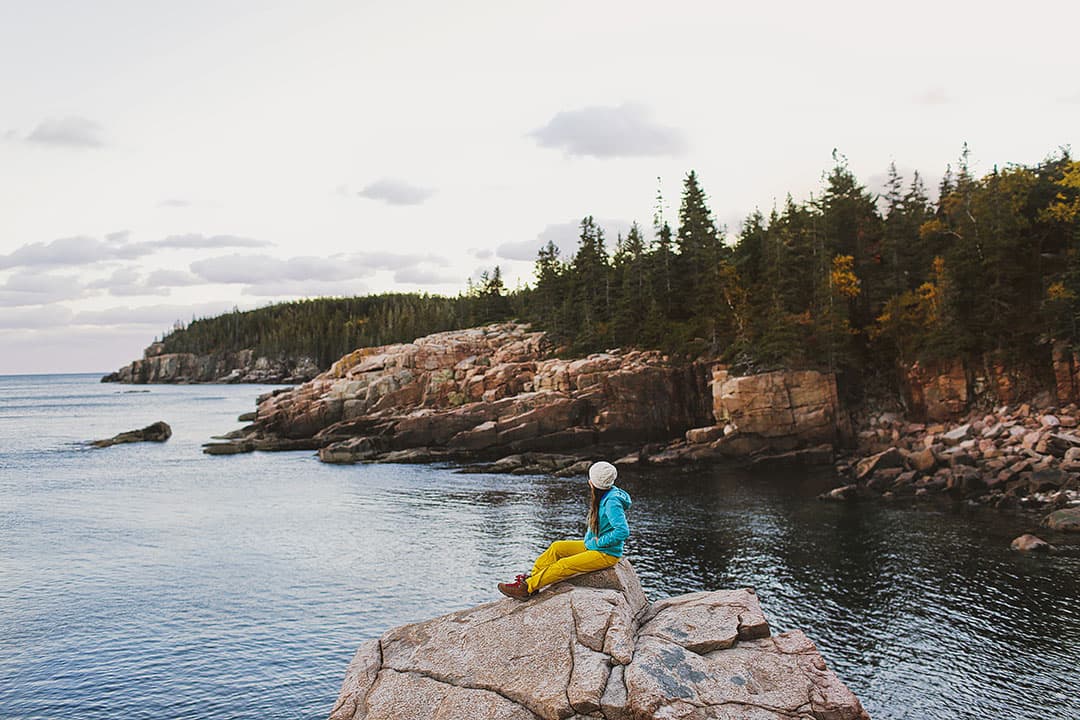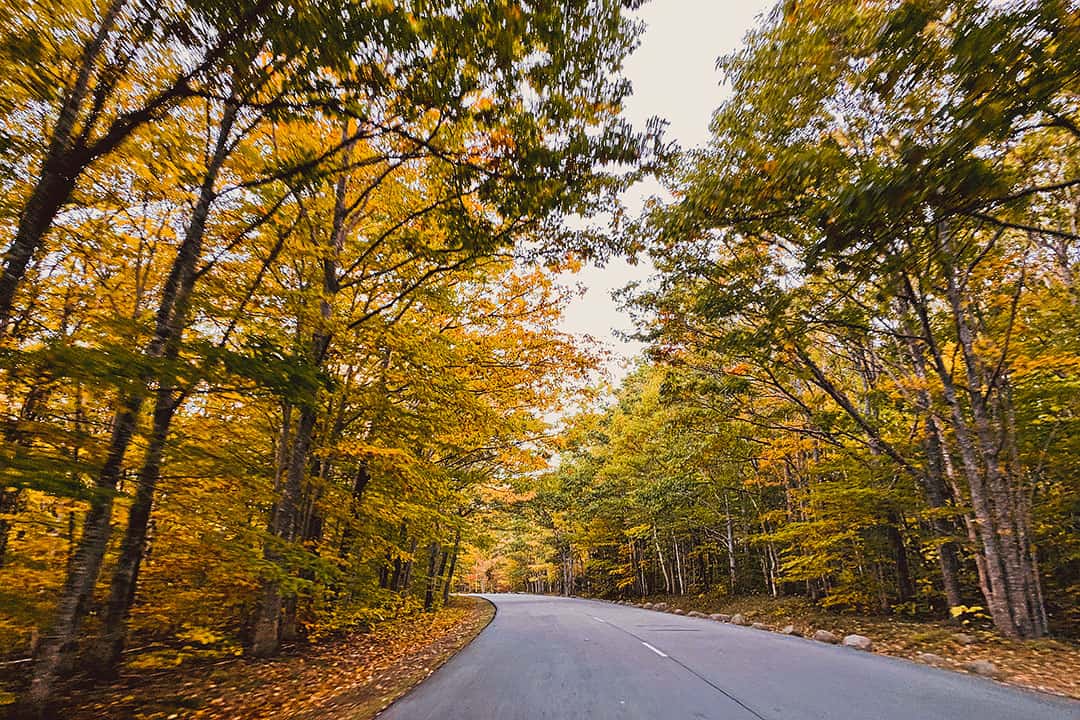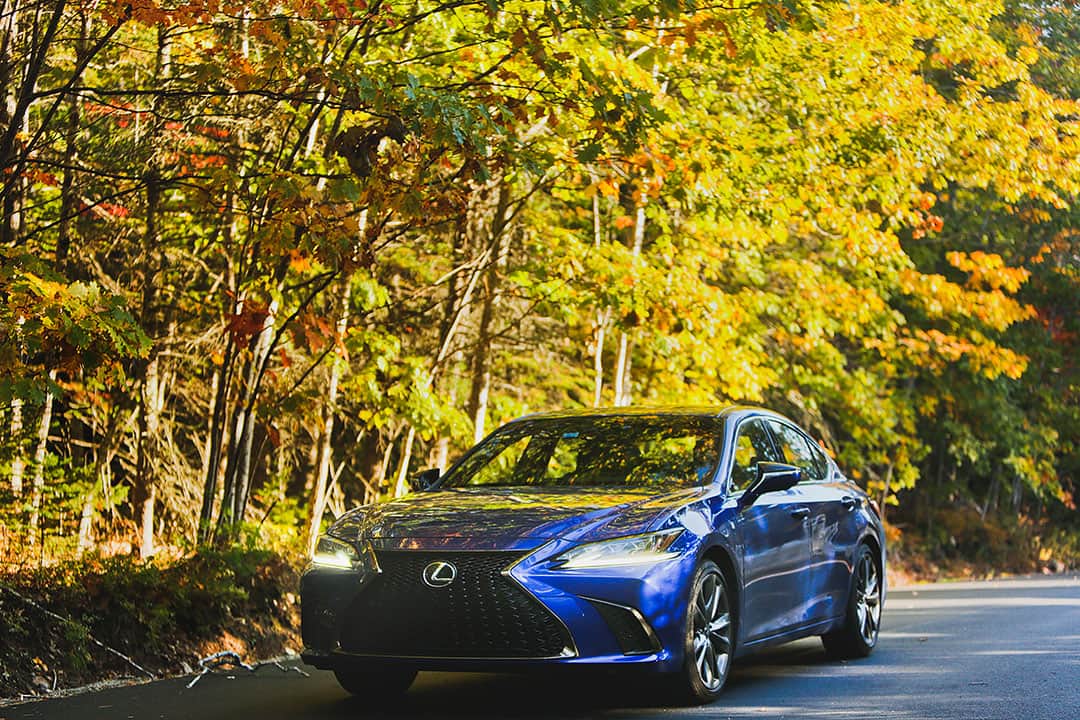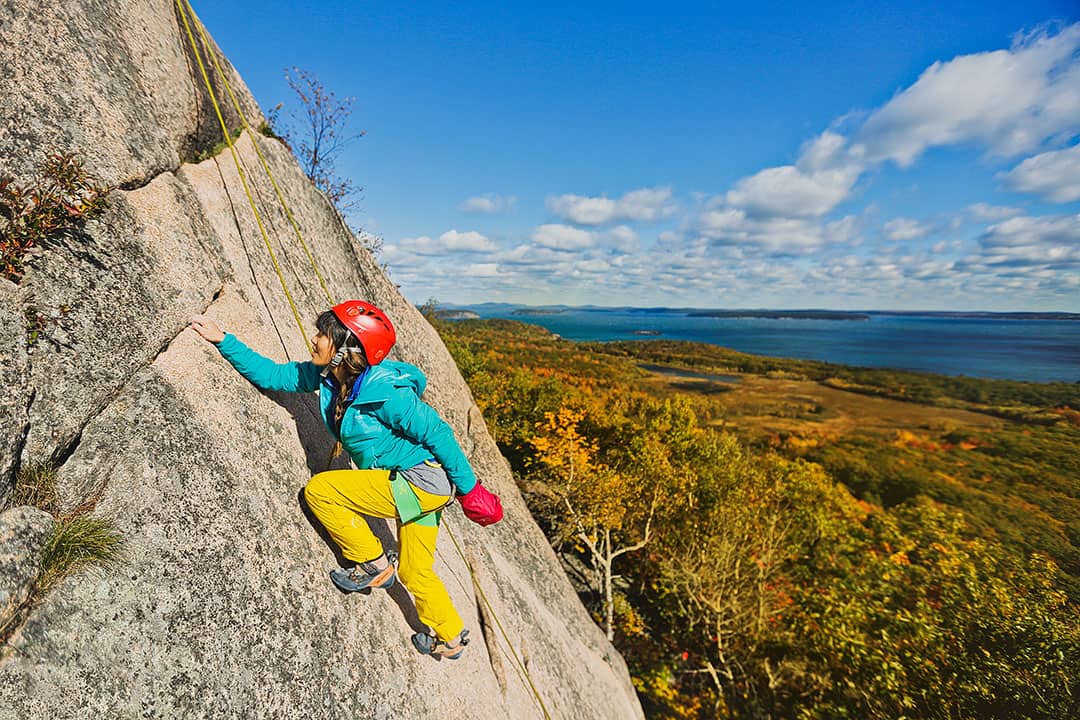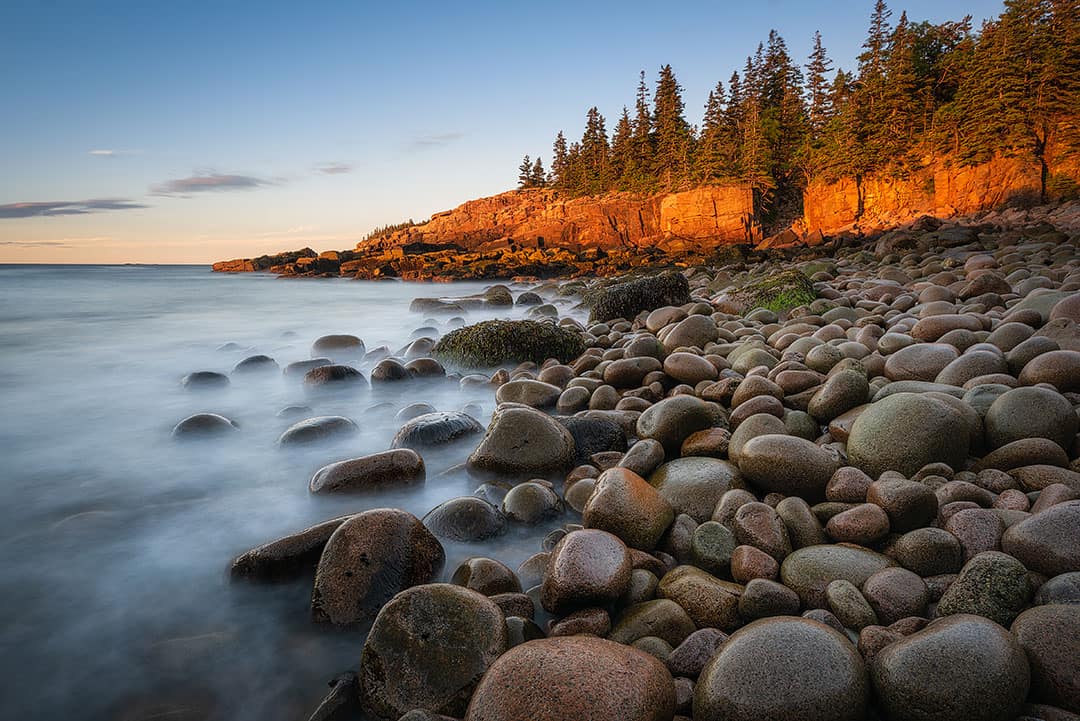Visiting Acadia? These are the best things to do in Acadia National Park.
As the country slowly opens up, the first places we can’t wait to explore are the National Parks. We’ve been fortunate enough to visit 37 major national parks so far, and we’re excited to experience more of them when we can again.
Acadia National Park is such a great weekend trip in the Northeast. It was an 8 hour drive from NYC, but we were willing to do it since we would be seeing the autumn colors both ways. The beautiful rugged coast, stunning fall foliage, and granite peaks make for a beautiful backdrop.
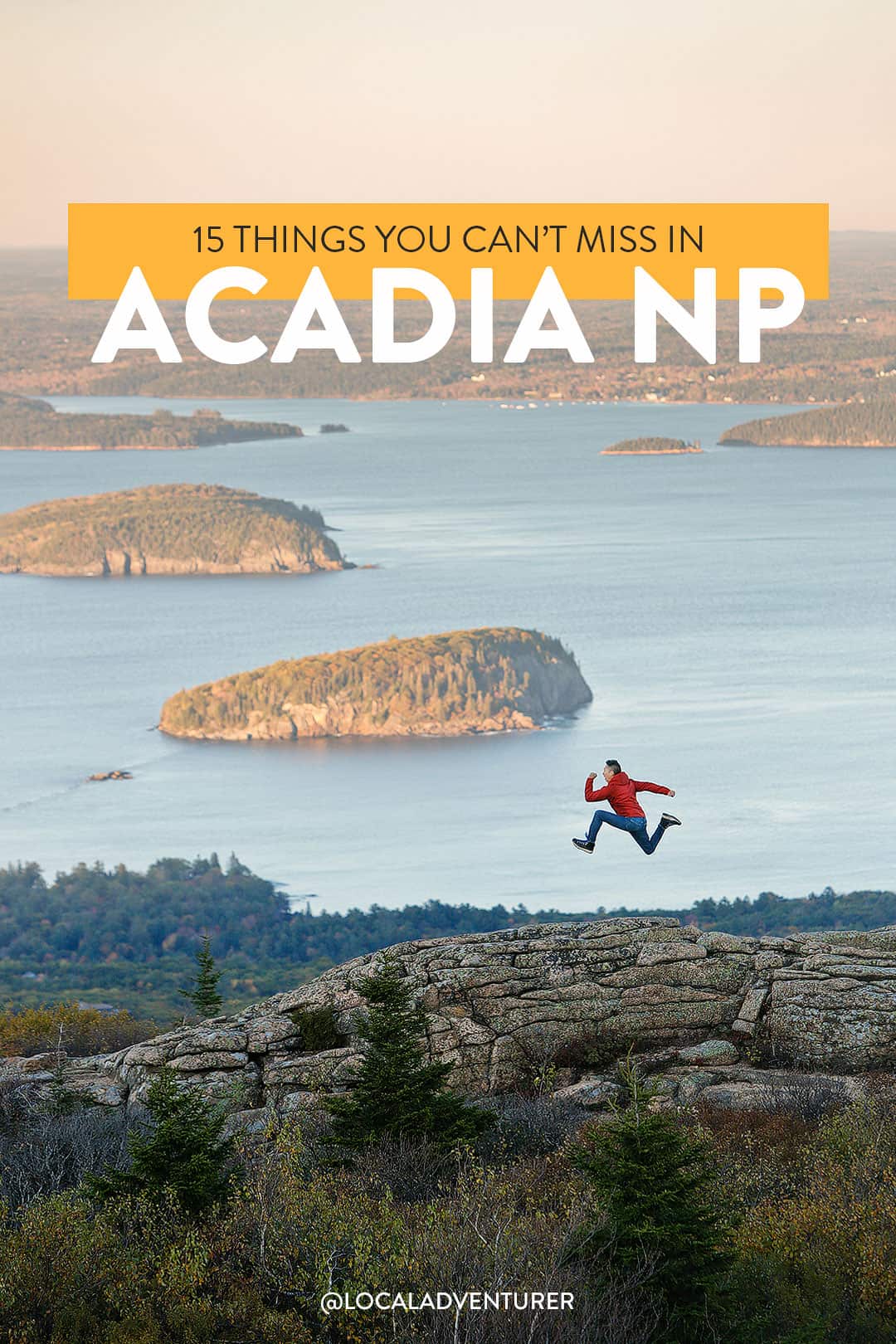
Thank you Visit Maine for hosting our trip and Lexus for hooking us up with a car for the weekend. All opinions are always our own. This post may contain affiliate links, where we receive a small commission on sales of the products that are linked at no additional cost to you. Read our full disclosure for more info. Thank you for supporting the brands that make Local Adventurer possible.
Last Updated: July 21, 2024
Your Ultimate Acadia National Park Guide
There are beautiful drive-up vista points, amazing trails to hike, and there’s even rock climbing. Besides that, the town of Bar Harbor has plenty of restaurants and shops to keep you comfortable.
Where is Acadia National Park
Acadia National Park is 47,000 acres located on the coast of Maine and is the only major national park in the northeast.
How is the Park Divided
- Mount Desert Island – The majority of the park is here and is the easiest to access.
- Bar Harbor – The main town in the area where you can find lodging and restaurants.
- Schoodic Peninsula – A great place to get away from the crowds. 1 hr drive from Bar Harbor.
- Isle au Haut – A remote island only accessible by ferry.
15 Breathtaking Things to Do in Acadia National Park
Note: While we stayed home, the earth was able to take some time to heal. It made us think a lot about how we should be better stewards of our planet moving forward. As we start exploring the National Parks, let’s leave it better than we found it (ie. pick up any litter we see, try to create less waste while traveling, become a VIP and join the Volunteer in Parks program, etc)
1. Visit Hulls Cove Visitor Center
25 Visitor Center Rd, Bar Harbor, ME 04609, map
We always recommend stopping by the Visitor Center to talk to a ranger before any National Park visit. They always know what’s currently going on in the park. If they have any ranger programs or hikes, we try to sign up for at least one. You learn a lot more through them, and sometimes you even get access to an area of the park you otherwise wouldn’t.
2. Watch the Sunrise or Sunset from Cadillac Mountain
707 Cadillac Summit Rd, Bar Harbor, ME 04609, map
Update: Tickets are required to drive up Cadillac Summit Road from May to October. There are two types of tickets, sunrise and daytime, that must be purchased online at Recreation.gov. Tickets cost $6 and they will be releasing 30 percent of reservations 90 days in advance with the remaining 70 percent released at 10 AM EST two days ahead. Find more details here.
Our first stop when we arrived in the park was Cadillac Mountain for sunset. It’s easily the most popular spot in the park. While we were there, we enjoyed the sunset with hundreds of others. If you want the solitude, though, there’s plenty of space to walk further down and find a spot to yourself.
There is a trail that goes to the top, but we don’t believe in hiking to any spot you can drive to. So we parked and enjoyed the view.
There’s also a lookout just before the peak called the Blue Hill Overlook. The parking lot is much smaller here but a great spot if you want to watch the sunset.
Local Tip: Parking lots can get full especially around sunset, so come a little earlier. Also, temperatures drop quickly once the sun goes down plus it gets windy. Have layers on hand to stay warm.
See More: Now These US National Parks Require Reservations
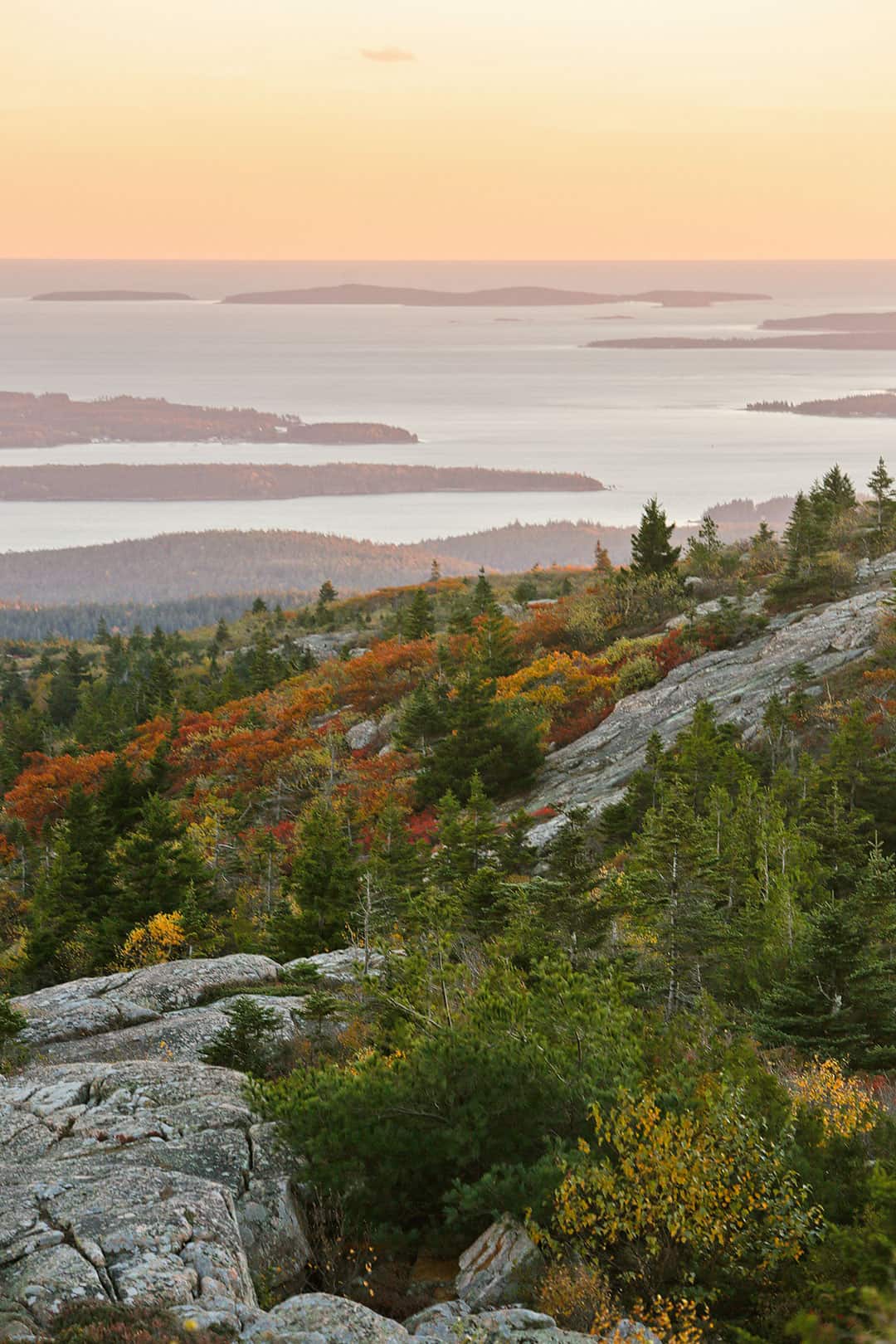
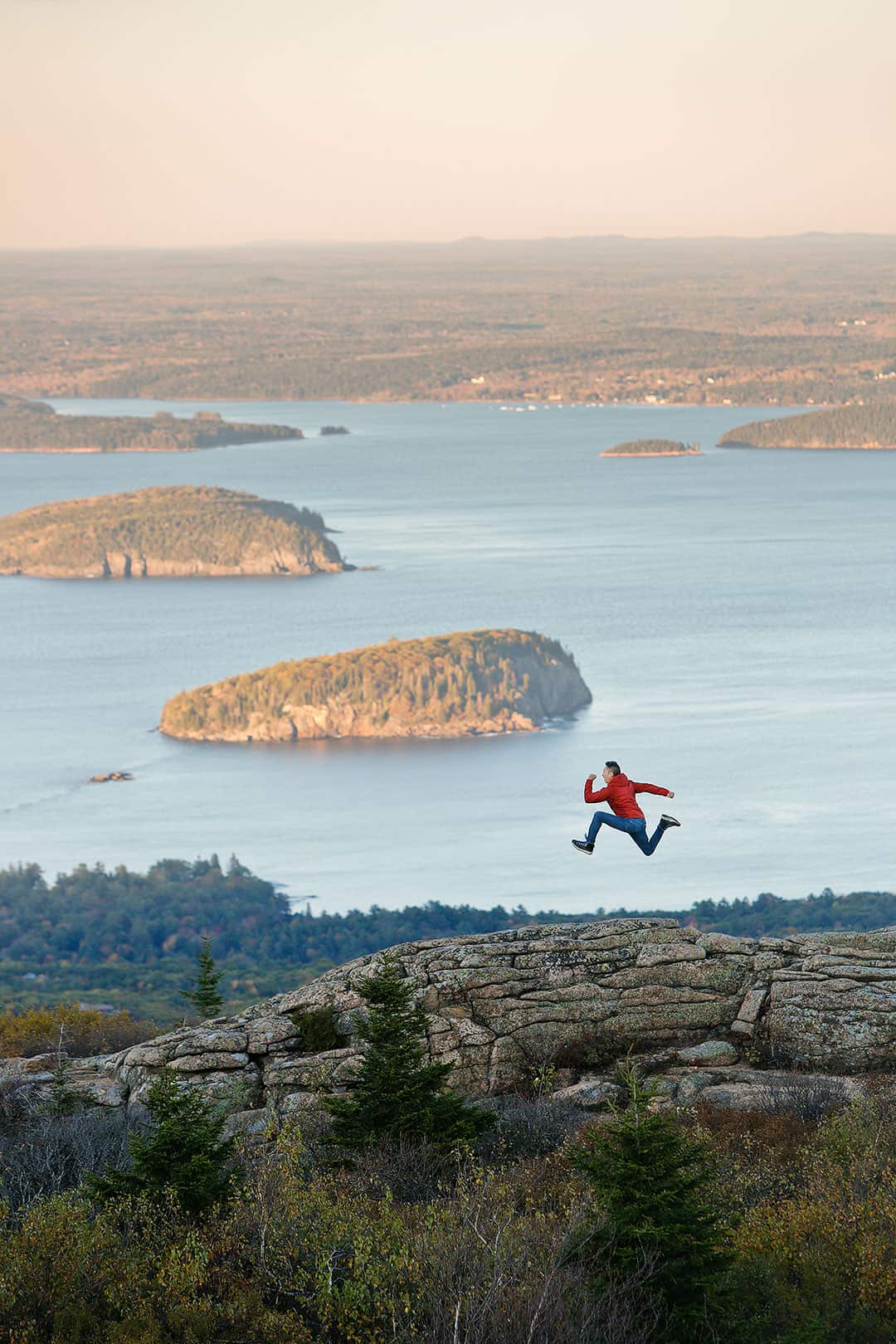
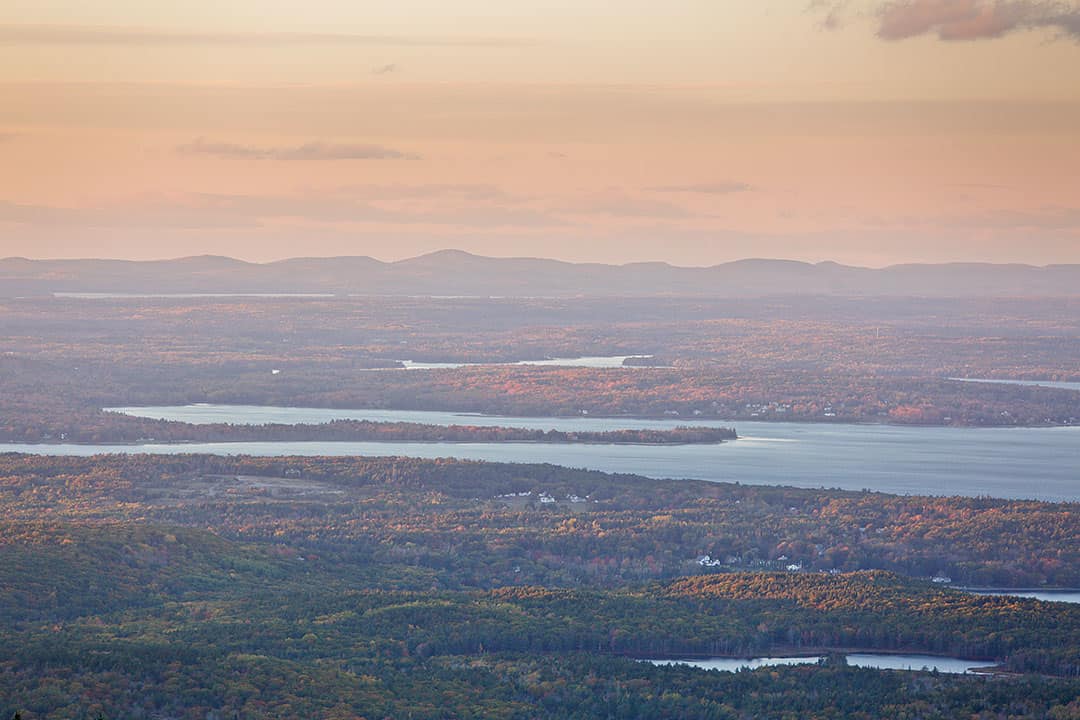
3. Drive the Scenic Park Loop Road
25 Visitor Center Rd, Bar Harbor, ME 04609, map
The Park Loop Road takes you to all the popular spots in the park. The loop starts at the Hulls Cove Visitor Center and runs 27 miles through the park. They recommend 3-4 hours so you can make some stops as well.
Along the way, you’ll see lakes, mountains, rocky coasts, and forests. Some of the notable stops are:
- Sand Beach
- Thunder Hole
- Otter Cliff
- Jordan Pond
- Cadillac Mountain
Don’t forget to grab a map to help you decide where you want to stop. Keep in mind that the majority of the loop is one way, so you won’t be able to backtrack.
Local Tip: The Park Loop Road closes on December 1 (unless snowfall forces an earlier closure) and doesn’t reopen until April 15 (if weather permits). A two-mile section of the road is open year-round and is one of the most scenic portions of the drive.
See More: 21 Best Road Trips in USA to Put on Your Bucket List
4. Bass Harbor Head Lighthouse
Bass Harbor, ME 04653, map
The Bar Harbor Head Lighthouse is the most popular spot in the west side of the park. After parking your car, you walk down a short path to get up close to the lighthouse and panoramic views of the ocean.
There is also a path at the left side of the parking lot that leads down to rocks to get a great view of the lighthouse. This route isn’t that long either but much steeper. Once you’re down at the rocks, you have to hop around to get to a vantage point that you want.
Local Tip: Keep your eye on the tide so you don’t get your gear wet.
See More: 5 Beautiful Lighthouses in Portland ME You Need To Seet
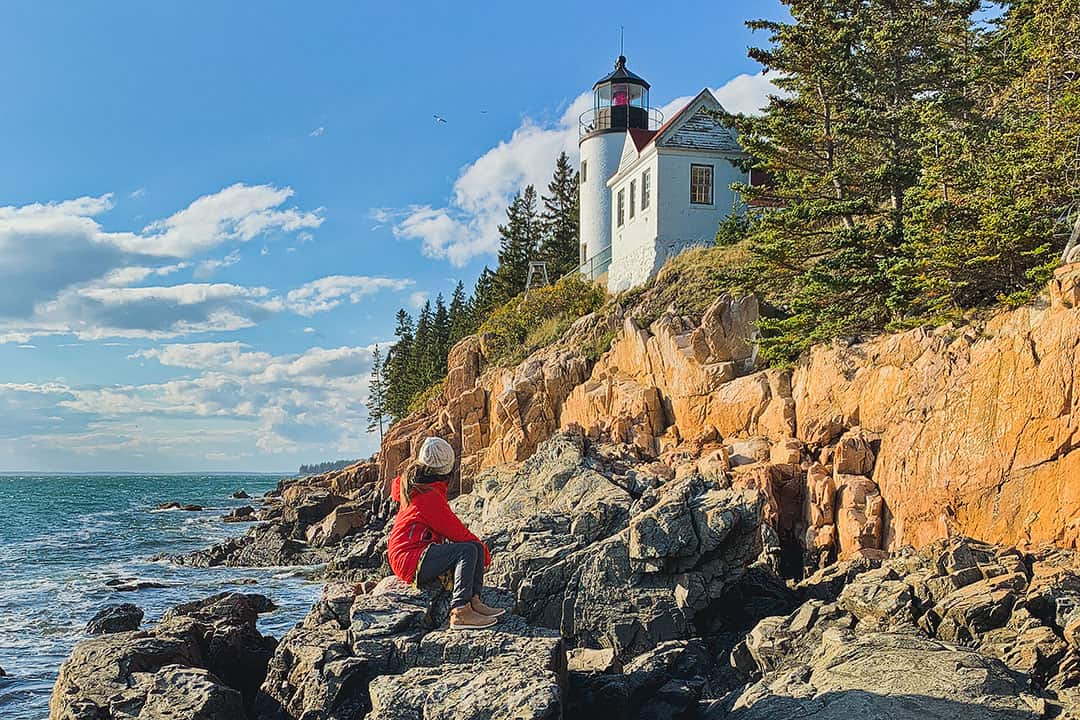
5. Hike Precipice Trail or Beehive Trail →
Precipice Trail, Bar Harbor, ME 04609, map
The Precipice Trail is such a fun day hike, but it might not be for you if you’re afraid of heights since there are some exposed sections. It’s a 2.1-mile loop with 1049 elevation gain, and there are rungs that you have to climb. There have been a couple deaths here, so don’t do it if it’s too far beyond your comfort zone.
I’m afraid of heights and thought it was a good mental challenge. This hike is sunny in the mornings and shaded in the afternoons. When we did it, it was really windy at the top too!
For an alternative hike, check out the Beehive Trail (1.4 mi loop, 488 ft elevation, difficult), which is easier but still has similar views.
Local Tip: The trail up was easy to follow, but we did second-guess ourselves coming down. Just keep an eye out for signs and know which trail names you’re looking for. Download Alltrails+ so you can download the trail map and have it available offline.
See More: 15 Best Day Hikes in the US
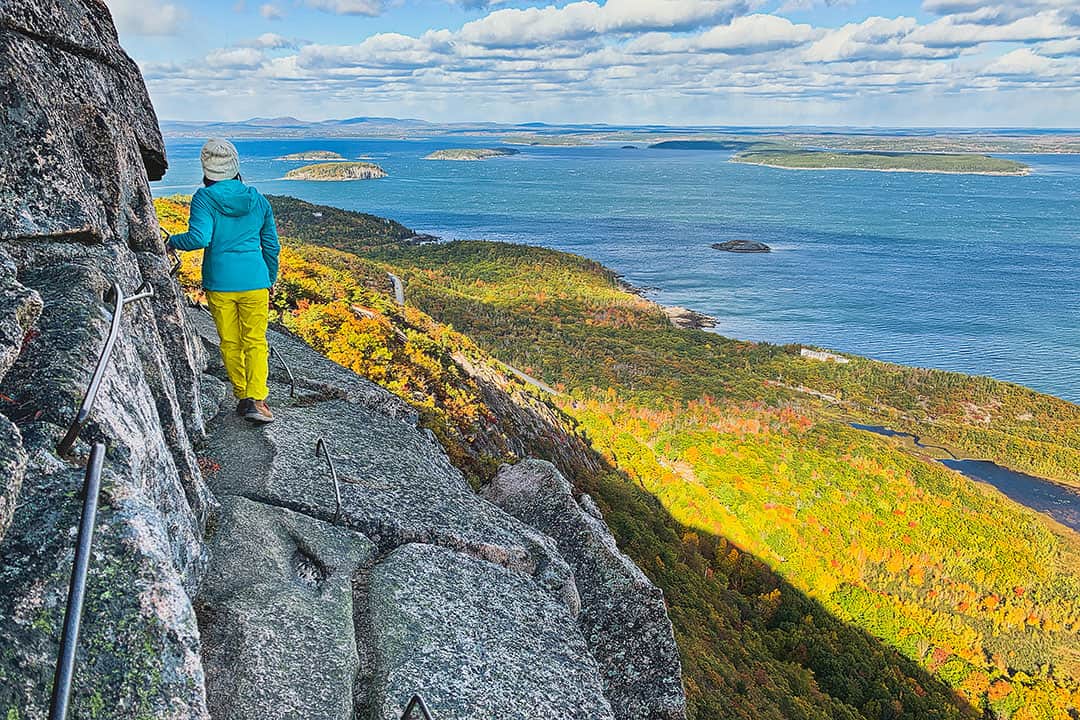
6. Rock Climb at Otter Cliff
44.3107331,-68.191098, map
On our trip, we decided to climb where you can see the fall foliage instead of at Otter Cliff but later regretted our decision.
Rock climbing at Otter Cliff is one of the most unique experiences because of the backdrop. If you’re looking for a guide, the folks at Atlantic Climbing School were amazing and knew all the spots to take us to. If you don’t climb, it’s still worth checking out for the views alone. You also might be able to spot some climbers.
See More: 17 Practical Gifts for Rock Climbers They’ll Love and Use
7. Thunder Hole
44.3207318,-68.1905347, map
Thunder Hole is a natural inlet where you can watch waves come crashing into the cove. Because it’s all about the tide, it’s important to time your visit accordingly. Even then, it’s no guarantee how thunderous the crashes will be since it’s just about big waves coming in.
We went here two days in a row and timed it according to the tide charts, but both times the waves were anticlimactic. It did hail on us though!
Local Tip: Go two hours before high tide for your best chance to catch the biggest and loudest crashes.
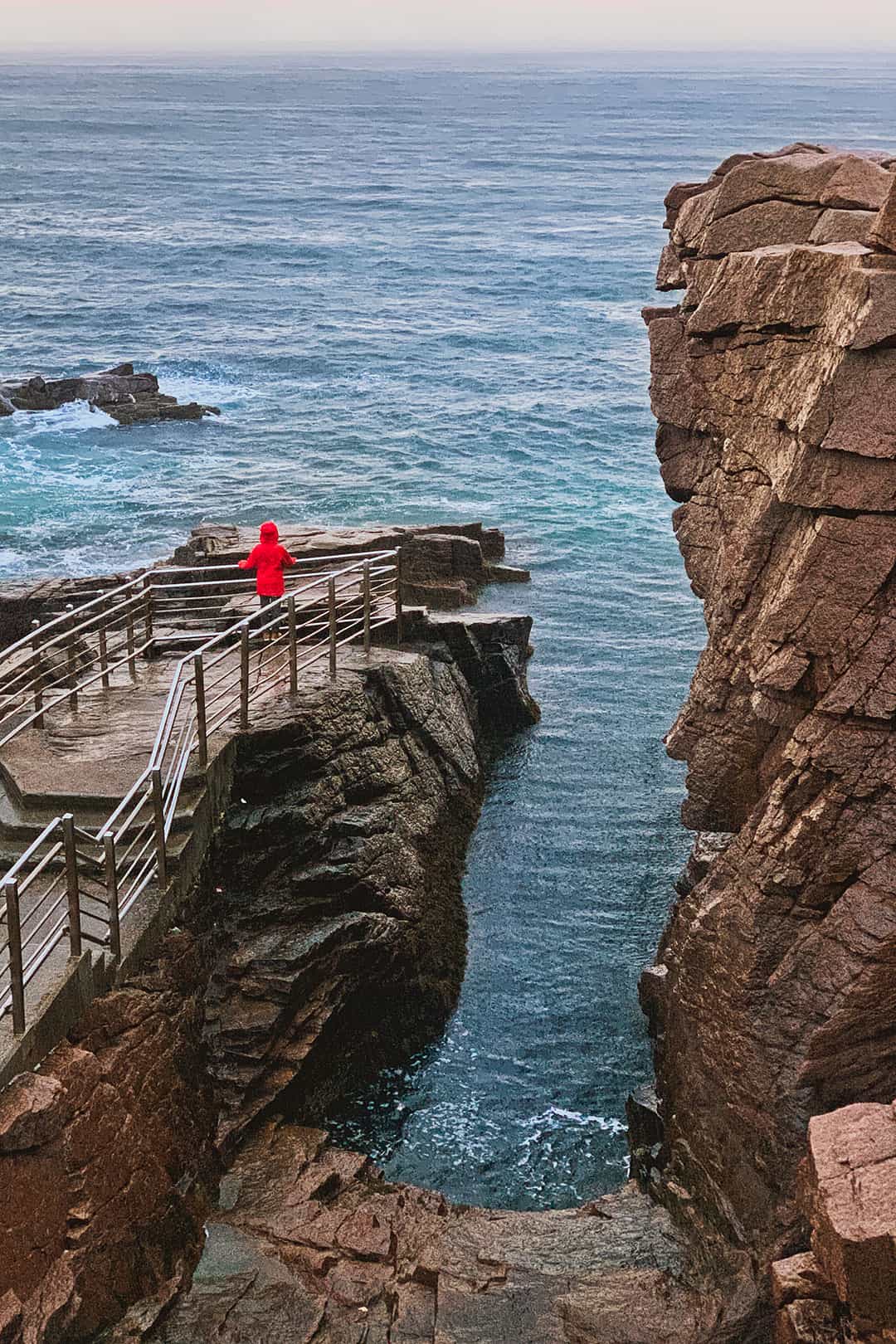
8. Bike Carriage Roads
Carriage Roads run 45 miles throughout the park and are made up of crushed rock surfaces making it perfect for biking. These roads are closed off to cars, but you’ll be sharing them with horses and hikers.
9. Jordan Pond and Stop for Popovers at Jordan Pond House
2928 Park Loop Rd, Seal Harbor, ME 04675, map
For a relaxing afternoon, head over to the Jordan Pond where you can take in the views of the North and South Bubbles in the distance. The best views are right by the parking lot on the south end of the pond.
You can also stop in at Jordan Pond House for Afternoon Tea, or as they call it Popovers and Tea. Reservations are highly recommended, and it’s always good to check their current hours as it changes throughout the year.
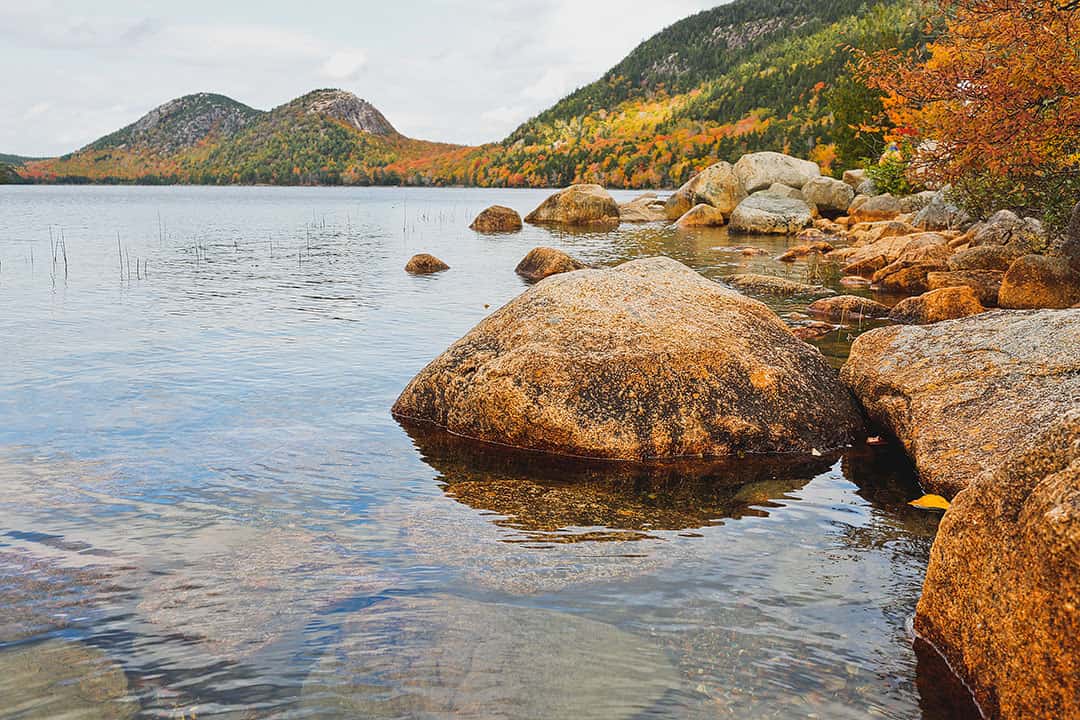
10. Lobster Boat Cruise →
55 West St, Bar Harbor, ME 04609, map
Since lobster is synonymous with Maine, we couldn’t visit without going on a Lobster Boat Cruise. We learned about the history and got up close and personal with the lobsters. The folks at Lulu Lobster Boat Ride did a great job in showing us around the area that can only be accessed by boat, how they catch lobsters, and telling us tales of some of the crazy things they’ve seen.
If that doesn’t interest you, you can also go whale watching (Mid-April to October) or puffin viewing (mid-May to mid-August) depending on the time of year.
See More: 15 Best Places to Whale Watch in the US + When to Go
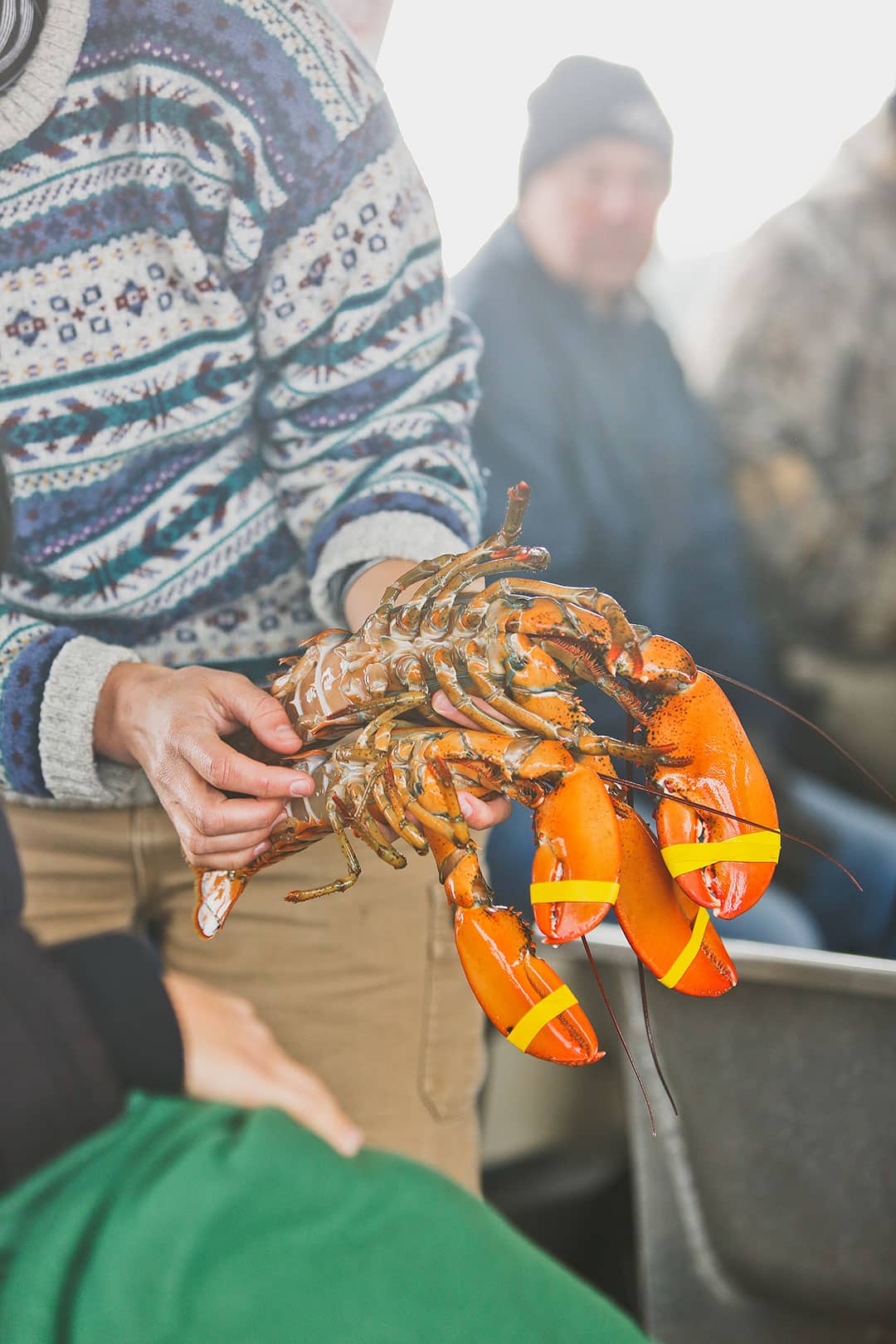
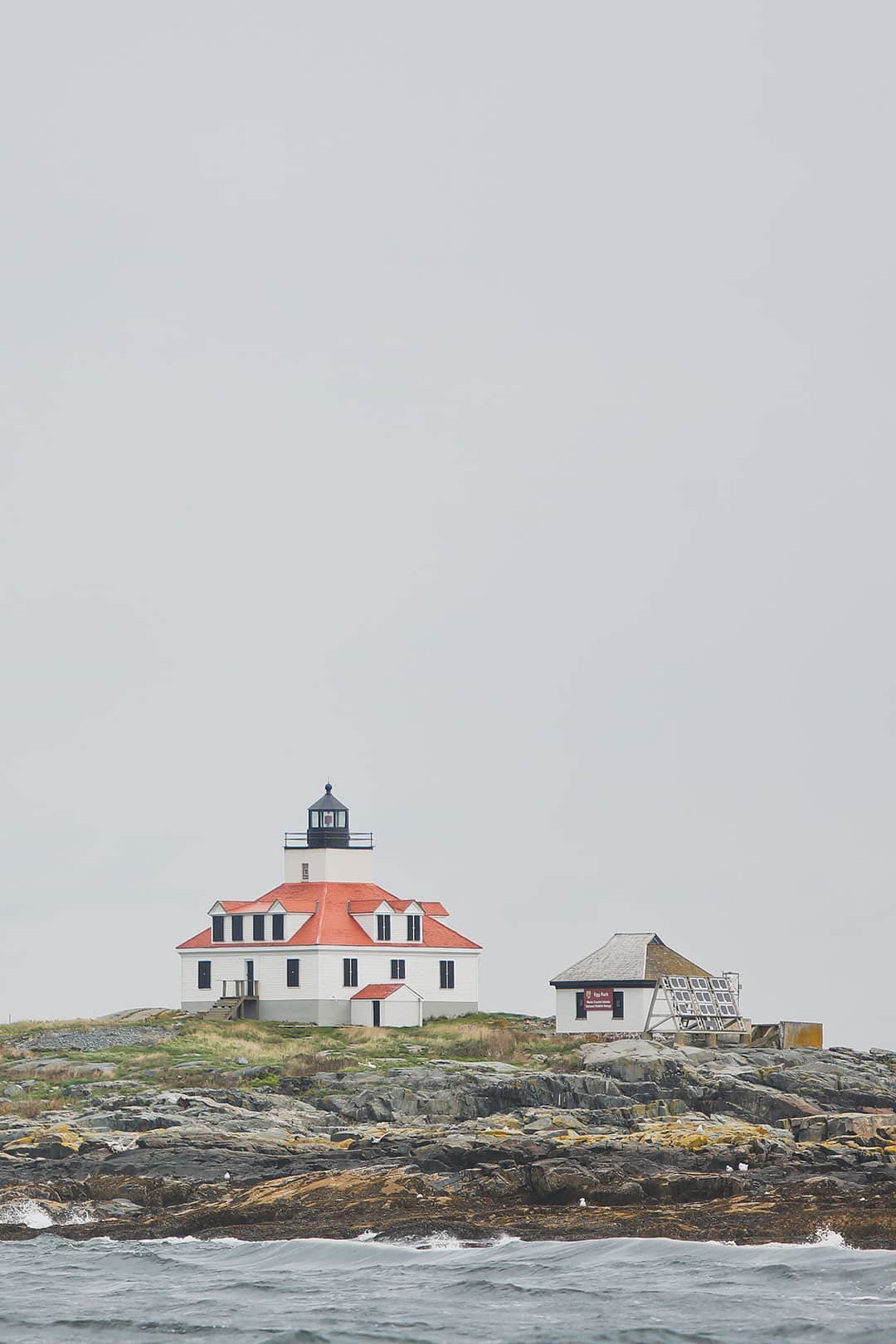
11. Swim, Kayak, Sup
Bar Harbor, ME 04609, map
Acadia National Park has two popular beaches. Sand Beach, which is located in a cove is ocean swimming with water temperatures around 55°F. The other is Echo Lake Beach which has slightly warmer temperatures. Both of these locations have lifeguards staffed during the summer.
You can also explore the waters in Acadia and surrounding areas via kayak, canoe, or SUP. Most of these outfitters are based in Bar Harbor.
12. Fall Foliage
Acadia National Park is already filled with beautiful views and landscapes, but it’s extra magical in the fall. Maple, birth, and polar trees bring colors of red, orange, and yellow to Acadia starting in September and typically peaking around mid-October.
You can also catch the end of the whale watching season, and if you’re lucky see a puffin or two, although they are usually gone by this time of year.
See More: 17 Destinations for the Best Fall Foliage in USA
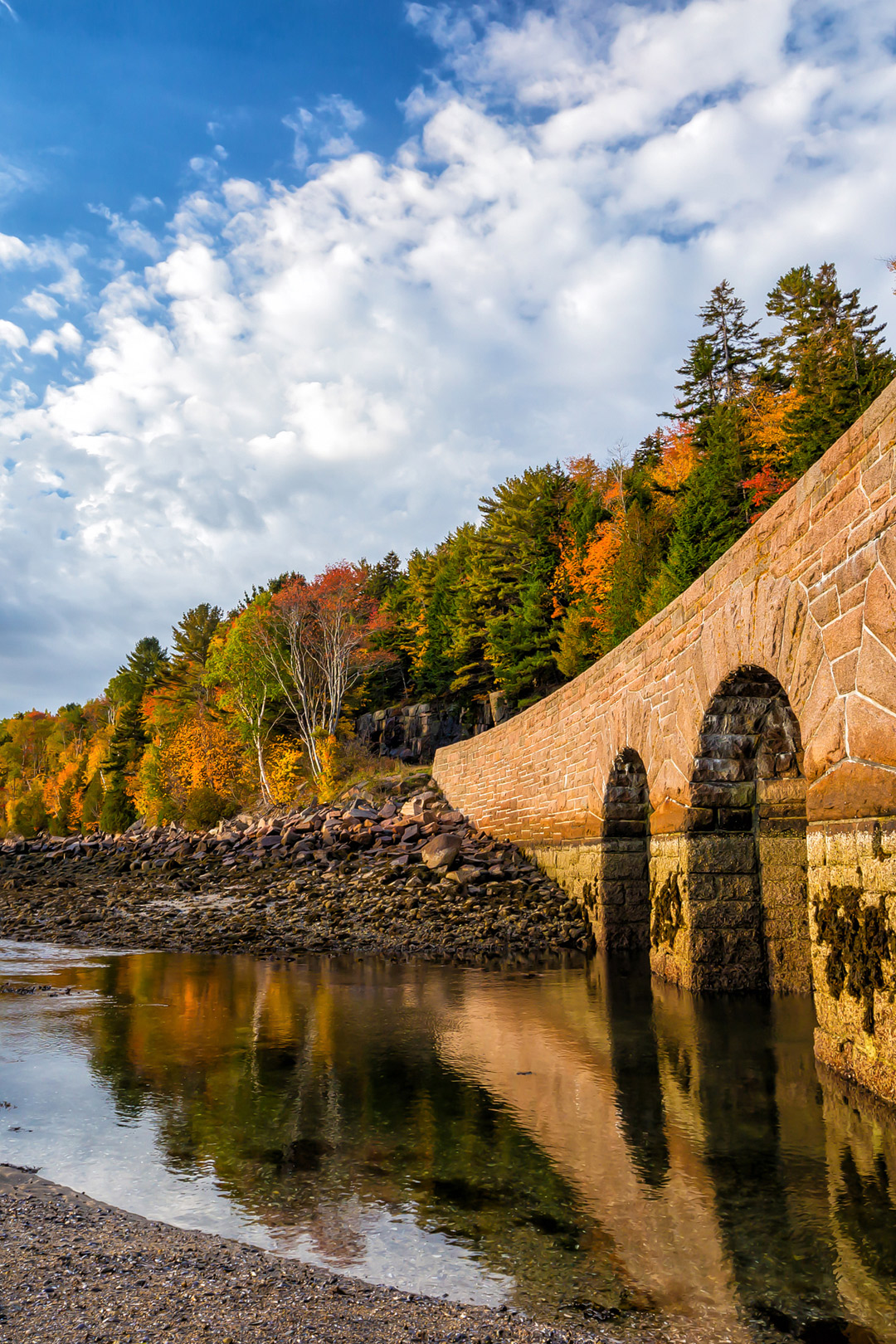

13. Camping
Camping is very popular in Acadia National Park, and with limited campgrounds, you need to plan ahead. During peak season, they can fill up as early as 6 months in advance.
Mount Desert Island has two campgrounds (Blackwoods and Seawall), Schoodic Peninsula has one Schoodic Woods), and there are five primitive sites on Isle au Haut (Duck Harbor).
If these are full, there are private campgrounds in the surrounding communities as well.
14. Schoodic Peninsula
Arey Cove Rd, Winter Harbor, ME 04693, map
The Schoodic Peninsula is actually found on the mainland, unlike the other two sections of the park. Although the landscape is similar to Mount Desert Island, because it’s about an hour away from Hulls Cove Visitor Center, it is a much more secluded area.
The 6-mile park road on Schoodic Peninsula is mostly one way with turnouts for viewpoints and a handful of hiking options.
Don’t miss Schoodic Point, Schoodic Head, and views from the Blueberry Hill Parking Area.
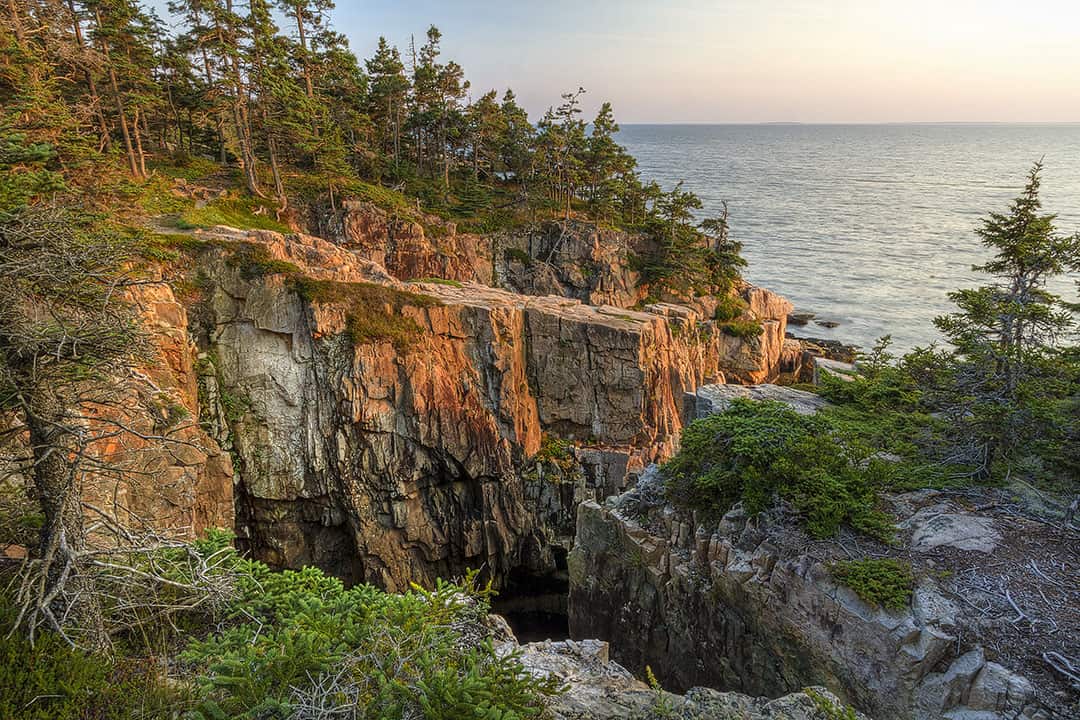
15. Abbe Museum
26 Mt Desert St, Bar Harbor, ME 04609, map
The Abbe Museum started as a small trailside museum in Acadia National Park. This privately run museum still exists and is open from spring to fall. The trailside museum, known as Sieur de Monts, allows you to see early 20th century presentations of Native American archaeology in Maine.
They have also opened a larger museum in downtown Bar Harbor where you can learn more about the history and cultures of the Native people in Maine. Here, there are rotating exhibitions, special events, and workshops.
Local Tip: The Museum is the only Smithsonian Affiliate in the state of Maine.
Bonus: Isle Au Haut
37 Seabreeze Ave, Stonington, ME 04681, map
f you’ve visited previously or are spending extended time in Acadia, you can venture into the most remote section of the park.
Translated, Isle au Haut means High Island, and it’s only accessible by ferry from Stonington, ME, which is about an hour and half drive from Bar Harbor.
Once you’re on the island, you can explore by hiking different trails (18 miles of trails) to see the rocky shorelines, wooded uplands, marches, and bogs, or bike along the different trails (5 miles of paved roads and 7 miles of unpaved roads).
Keep in mind that they limit the number of visitors allowed in the Isle au Haut section to protect the environment, so the best is to stop by the Hulls Cove Visitor Center to plan ahead.
Local Tip: Temperatures on the island are usually 10°F cooler than the mainland so dress accordingly.
Map of THings to DO in Acadia National Park
More Things to Do in Acadia National Park
- Azalea Garden: (ME-3, Mt Desert, ME 04660, map) A beautiful 2.3 acre garden featuring rhododendrons and azaleas.
- Somes Sound: (5 Spinnaker Way, Mt Desert, ME 04660, map) Described as the only fjord on the East Coast, this beautiful body of water almost splits Mount Desert Island in two. Enjoy getting on the water, camping, or just taking in the views.
- Southwest Harbor: Is a less frequested section of Mount Desert Island. It’s a great area to get away from crowds without having to go too far.
- Boulder Beach: (Bar Harbor, ME 04609, map) Just north of Otter Cliff, Boulder Beach is an easy spot to get to and one of the best places to enjoy the sunrise.
- Eagle Lake: (Bar Harbor, ME 04609, map) Eagle Lake is less popular than Jordan Pond so you’ll find fewer people here. Theere is a 6 mile loop around the lake where you can get great views of the lake itself.
- Cross Country Skiing and Snowshoeing: A great way to explroe the park during the winter.
- Snowmobiling: Another fun way to see a different side of the park during the winter.
More Acadia National Park Hiking
Acadia has more than 125 miles of hiking trails and 45 miles of carriage roads to explore. Here are some of the popular hikes to check out. Don’t forget to download Alltrails+ so you can have the maps offline.
- Beehive Loop Trail: (Difficult, 1.4 mi loop, 488 ft elevation) A steep climb to the top of a mountain with amazing views of the Atlantic and surrounding hills.
- North Bubble Trail: (Moderate, 0.9 mi out and back, 374 ft elevation) Bubble Rock is the most well-known rock in Maine and one of the most visited spots in Acadia National Park.
- Ocean Path Trail: (Easy, 4.5 mi out and back, 374 ft elevation) Begins near Sand Beach and runs parallel to the Park Loop Road on its east side past Thunder Hole all the way to Otter Cliff – Park at the Sand Beach or Otter Point parking lots.
- Jordan Pond Nature Trail Loop: (Easy, 1.0 mi loop, 32 ft elevation) Easy hike taking your through forest and views fo the pond.
- Cadillac Mountain Loop: (Easy, 0.3 mi loop, 45 ft elevation, easy) Easy hike giving you different vantage points from the mountain.
- Beech Mountain Loop: (Moderate, 1.2 mi loop, 347 ft elevation) Great hike for wild flowers and a great view of Echo Lake.
- Jesup Path: (Easy, 1 mi loop, 9 ft elevation) Easy walk around the Nature Center that gives you a chance to see wildlife and bird watching.
- Wild Gardens of Acadia: Stop by to see native trees, wildflowers, and ferns amongst well marked and easy trails to follow.
What to Pack for Your Trip
- Layers: Depending on what your’e doing and how long you’re staying out, temperatures can swing 30-40°F throughout the day. it’s good to have layers so you can adjust accordingly. Also keep in mind that if you hike to higher vantage points, it could be windier up high.
- Rain Jackets: Since it can rain throughout the year, it’s good to have rain jackets handy. We currently have these since they are lightweight and reliable.
- Hiking Boots: If you plan on doing any hiking, it’s good to have sturdy shoes. Some of the best hikes require some scrambling and climbing rungs and you don’t want to have to worry about slippery shoes. If you visit in the winter, have spikes on hand as well. We love our Danner Boots.
- Bug Spray: Certain areas of the parks have mosquitos and other pests that can be really annoying, especially int he summer. It’s always good to have bug spray or wipes handy in case you need them.
- Sun Block: Even if the temperatures are cooler, don’t forget to protect your skin.
- Camera Gear: There are tons of photo ops, so don’t forget your camera gear. Check out what’s in our bag here.
Essential Tips for First Timers
- When to Visit: Peak season is July-September and Fall Foliage season. To avoid crowds and get great weather, visit a week or two after Labor Day but before mid-September.
- Weather: Acadia National Park experiences all four seasons. Summer usually ranges between 45°F to 90°F. Fall ranges from 30°F to 70°F. Winter temperatures can be anywhere between 14°F to 35°F. The snowfall usually starts in November and can continue through April. Spring will bring temperatures between 30°F and 70°F. You should always be prepared for rain throughout the year and fog is common in the summer months.
- Fees & Passes: A private vehicle permit runs $30 for up to seven days. We always recommend picking up an annual National Park Pass for $80 if you visit multiple parks during the year.
- Cell Service: Don’t rely on cell service in the park. It’s helpful to have a map or download the area on google maps prior.
- Shuttle Buses runs between hotels, inns, campgrounds, and popular spots in Acadia if you prefer not to drive.
- How Long Should I Spend in Acadia: You can see most of the popular spots in 2-3 days in the park.
- Pets are allowed in most of the park as long as they are leashed and attended. A few spots they are not allowed are Sand and Echo Lake Beach, Isle au Haut campground, ladder trails, public buildings, ranger led programs, and lakes that are public drinking water supplies.
- Bugs: Blackflies are most prevalent mid-May to mid-June. Mosquitos are also common depending on which area you are in.
- Wildlife: Moose and bears exist in Acadia but are rarely seen. The park is great for birding. You can also find puffins and whales in the area but usually only seen off the coast through boating tours.
- Follow Leave no Trace Principles: Leave what you find, pack it in and out, travel on trails whenever possible, and respect wildlife. See all 7 principles.
Where to Eat in Bar Harbor
- Havana (Seafood, $, map)
- Café This Way (New American / Brunch, $, map) – enjoyed the shrimp and grits.
- Thrive Juice Bar and Kitchen (Salad / Juice, $, map)
- Side Street Cafe (American, $, map) – picked up their lobster rolls to go here.
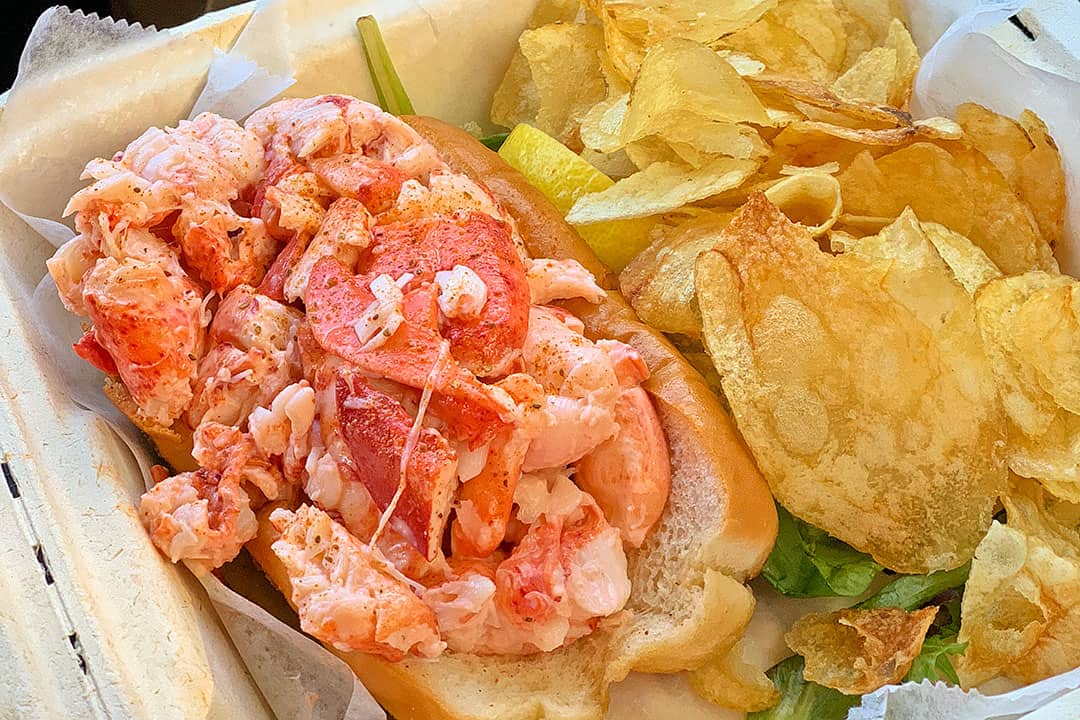
Best Places to Stay
- Campgrounds: Seawall Campground or Blackwoods Campground are the most easily accessible campgrounds in the park. They are very busy with only a few RV spots. Spots can be reserved up to 6 months in advance.
- Hotels: We stayed at Acadia Inn which was comfortable and a great home base for our time there.
Planning Checklist
- Get comprehensive insurance for your trip.
- Download these helpful language apps.
- Find a great deal on Bar Harbor hotels.
- Arrange a rental car for your trip.
- Book a tour for your visit.
- Get airport lounge access.
- Buy a travel charger to keep your devices charged.
- Get a new backpack for your trip.
- Buy an Acadia National Park travel guide.
- Pack the appropriate shoes for your trip.
- Don’t forget your in-flight essentials.
What’s Nearby
- Baxter State Park (133 mi, 2 h 35 min, map)
- Portland ME (170 mi, 2 h 55 min, map)
Can you think of any other things to do in Acadia National Park that we might have missed? Which of these activities are you most excited about?
DID YOU ENJOY THIS POST? PIN IT FOR LATER
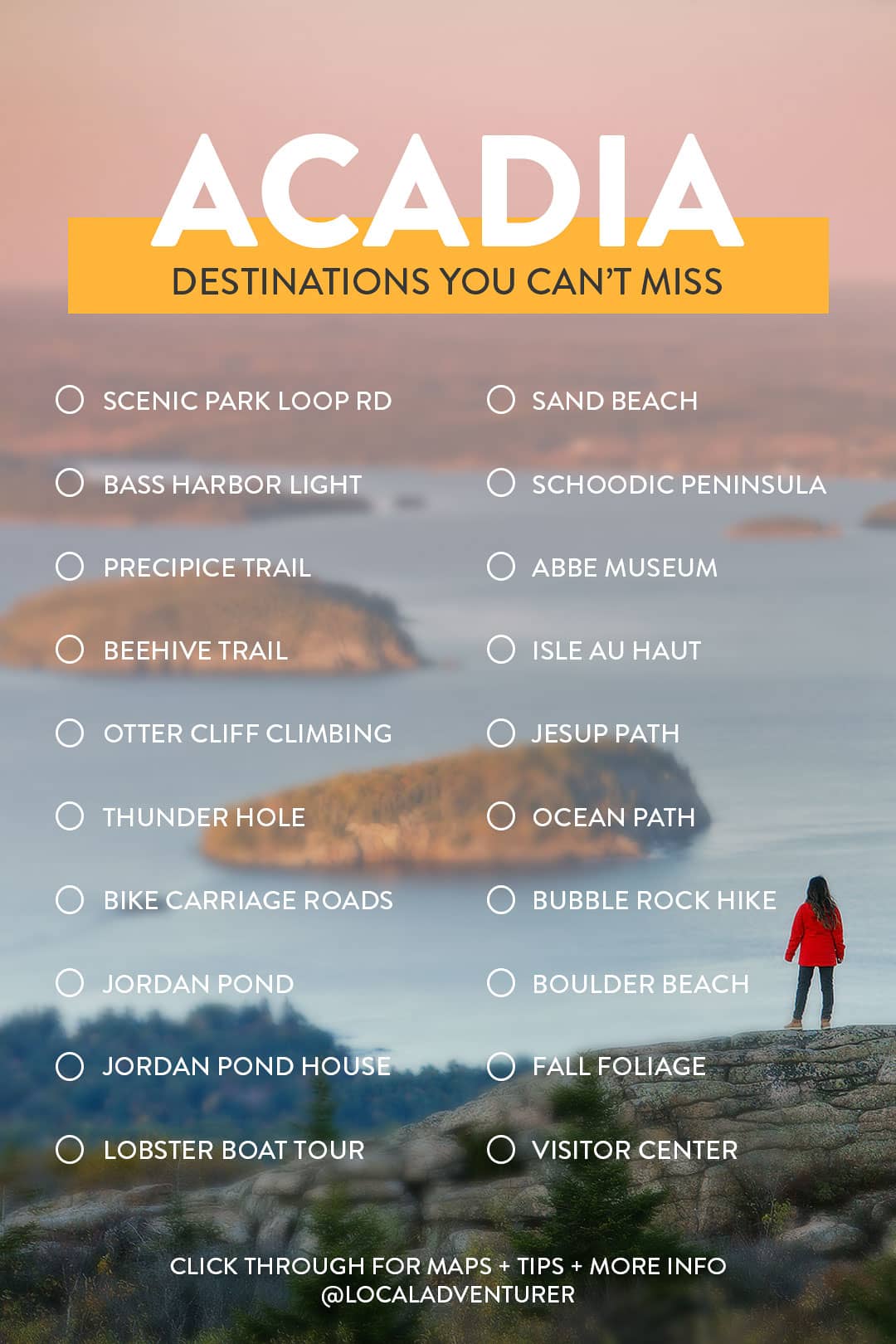
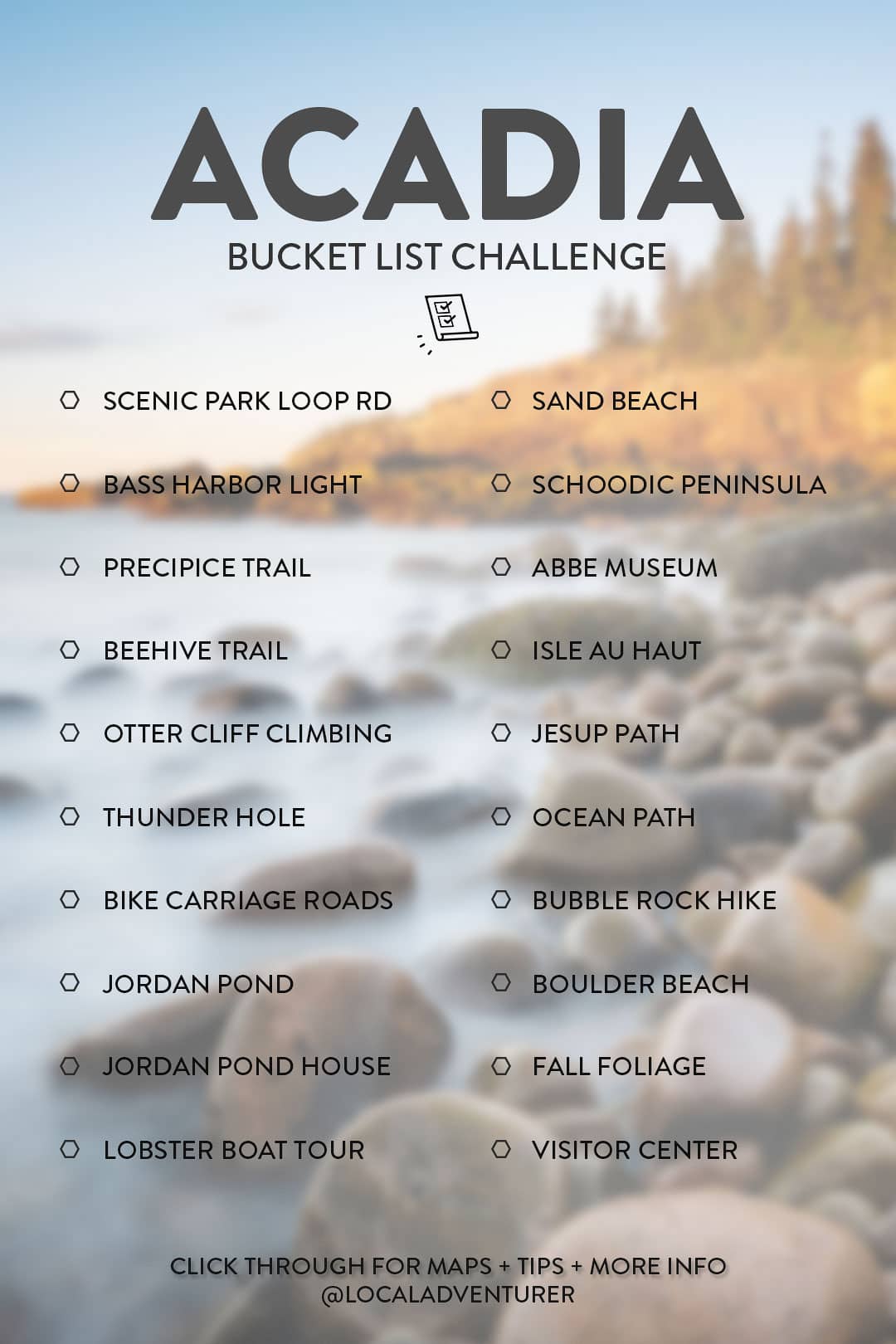

SEE MORE NATIONAL PARK GUIDES
⟡⟡⟡⟡⟡
“Discovery consists not of seeking new lands but in seeing with new eyes” – M. Proust

Esther + Jacob
Esther and Jacob are the founders of Local Adventurer, one of the top 5 travel blogs in the US. They believe that adventure can be found near and far and hope to inspire others to explore locally. They explore a new city in depth every year and currently base themselves in Las Vegas.
Follow on Instagram (E + J), YouTube, TikTok, and Pinterest.

